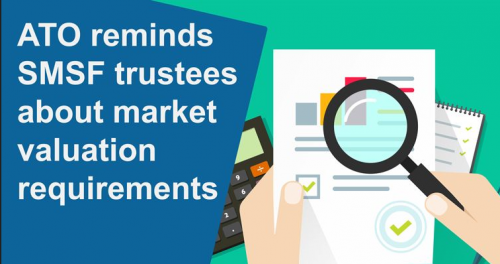The Australian Taxation Office (ATO) has recently issued a stern warning directed at trustees of self-managed superannuation funds (SMSFs), underscoring a significant issue with the practices surrounding asset valuations. According to the ATO, there is a noticeable pattern where over 16,500 SMSFs have reported unchanged asset values for three consecutive years. This trend is particularly concerning given that the assets in question often include major investments such as residential or commercial properties, which typically experience variable market conditions.
The Implications of Inaccurate Asset Valuations
The practice of consistently reporting static asset values can prompt increased scrutiny from the ATO. The accuracy of these valuations holds considerable importance, as they impact various facets of fund management and member benefits. These include member balance accuracy, contribution limits, and the ability to segregate assets for calculating exempt current pension income. Furthermore, precise valuations influence work test exemptions and eligibility for catch-up concessional contributions. Given these implications, the accuracy of asset valuations goes beyond mere regulatory compliance; it is a cornerstone of effective fund management and member equity.
The Oncoming Division 296 Superannuation Tax
The introduction of the Division 296 superannuation tax, which targets funds with balances exceeding $3 million, makes accurate asset valuation even more critical. This upcoming tax regime will affect taxation on fund earnings, potentially increasing tax liabilities for inaccurately valued funds. Trustees need to ensure their asset valuations reflect true market conditions to avoid falling into costly taxation pitfalls.
SMSF Valuation Requirements
The ATO mandates that SMSF assets be valued at their market value each financial year, and trustees must provide supporting evidence of these valuations to their fund auditor. Market value is determined based on what a reasonable buyer would be willing to pay a seller in an arm’s length transaction. More stringent requirements are set for collectibles and personal use assets, such as artwork and jewellery, where a qualified independent valuer’s input is necessary upon disposal and advisable every three years.
Specific Valuation Guidance
For real property, annual independent valuation isn’t a blanket requirement unless there are significant changes affecting the property’s value or the property is unique or hard to value. In such cases, documentation should include detailed property characteristics and relevant sales data. Commercial properties, particularly those leased to related parties, require careful documentation of net income yields and comparable market rents to support their valuations.
Valuing unlisted companies and trusts is inherently complex and should ideally reflect the underlying assets’ potential for income and growth, taking into account recent transaction prices for similar shares or units.
In situations lacking clear market data, trustees may need to rely on professional assessments or extrapolations from related market data to ensure valuations are as accurate as possible.
The Consequences of Non-compliance
Trustees who fail to meet these valuation standards risk facing not only tax inefficiencies but also potential penalties from the ATO. This underscores the critical nature of adhering to established valuation practices, ensuring that all SMSF trustees maintain the integrity and performance of their funds through compliant and strategic management practices.
In conclusion, the ATO’s warning is a timely reminder for SMSF trustees to revisit and possibly revamp their asset valuation practices. By ensuring valuations are accurate and reflective of the current market conditions, trustees can safeguard their funds against increased tax liabilities and ensure compliance with the evolving regulatory landscape.
Pitt Martin Group is a CPA accounting firm, providing services including taxation, accounting, business consulting, self-managed superannuation funds, auditing and mortgage & finance. We spend hundreds of hours each year on training and researching new tax laws to ensure our clients can maximize legitimate tax benefit. Our contact information are phone +61292213345 or email info@pittmartingroup.com.au. Pitt Martin Group is located in the convenient transportation hub of Sydney’s central business district. Our honours include the 2018 CPA NSW President’s Award for Excellence, the 2020 Australian Small Business Champion Award Finalist, the 2021 Australia’s well-known media ‘Accountants Daily’ the Accounting Firm of the Year Award Finalist and the 2022 Start-up Firm of the Year Award Finalist, and the 2023 Hong Kong-Australia Business Association Business Award Finalist.
Pitt Martin Group qualifications include over fifteen years of professional experience in accounting industry, membership certification of the Australian Society of Certified Practising Accountants (CPA), Australian Taxation Registered Agents, certified External Examiner of the Law Societies of New South Wales, Victoria, and Western Australia Law Trust Accounts, membership certification of the Finance Brokers Association of Australia Limited (FBAA), Registered Agents of the Australian Securities and Investments Commission (ASIC), certified Advisor of accounting software such as XERO, QUICKBOOKS, MYOB, etc.
This content is for reference only and does not constitute advice on any individual or group’s specific situation. Any individual or group should take action only after consulting with professionals. Due to the timeliness of tax laws, we have endeavoured to provide timely and accurate information at the time of publication, but cannot guarantee that the content stated will remain applicable in the future. Please indicate the source when forwarding this content.
By Zoe Ma @ Pitt Martin Tax

